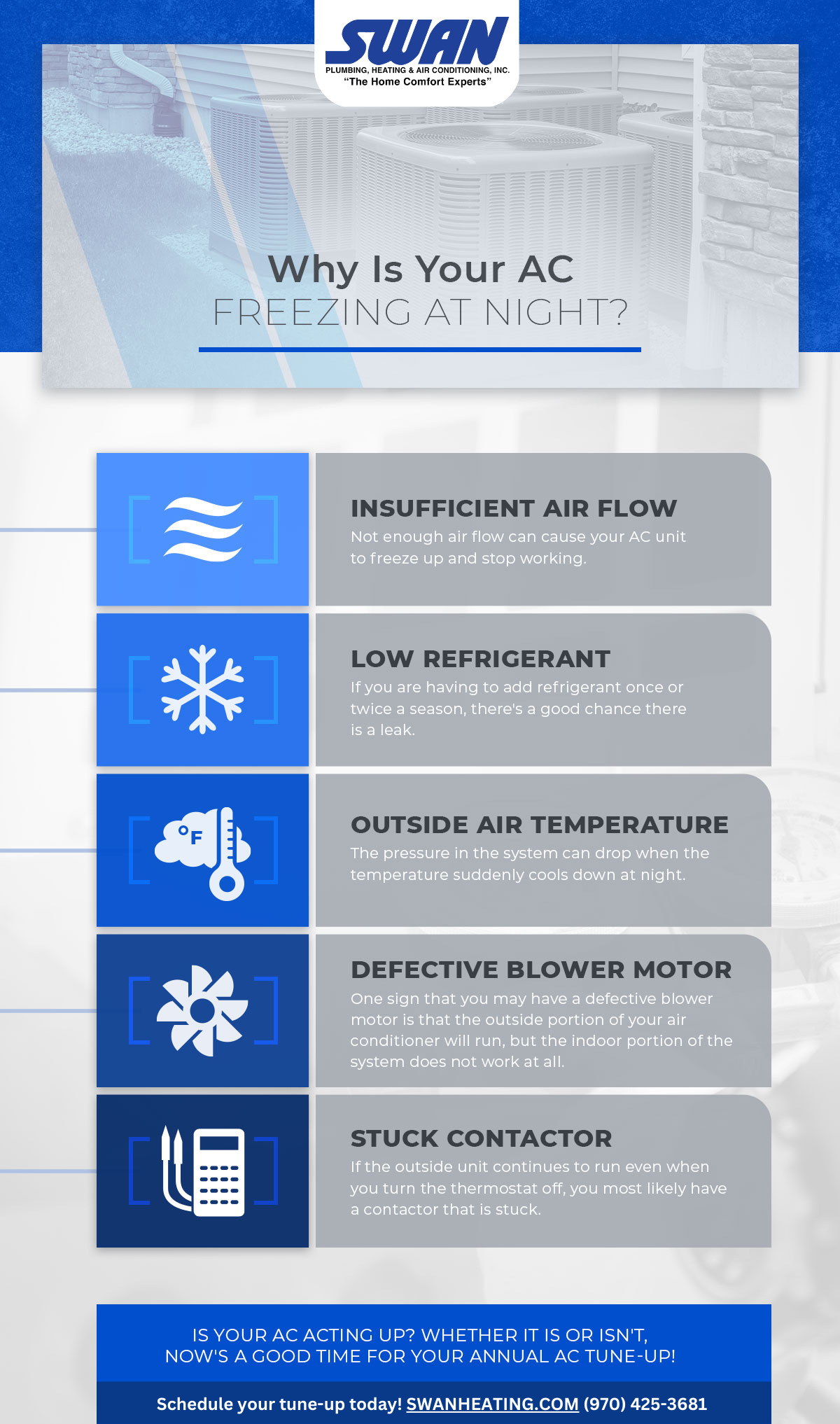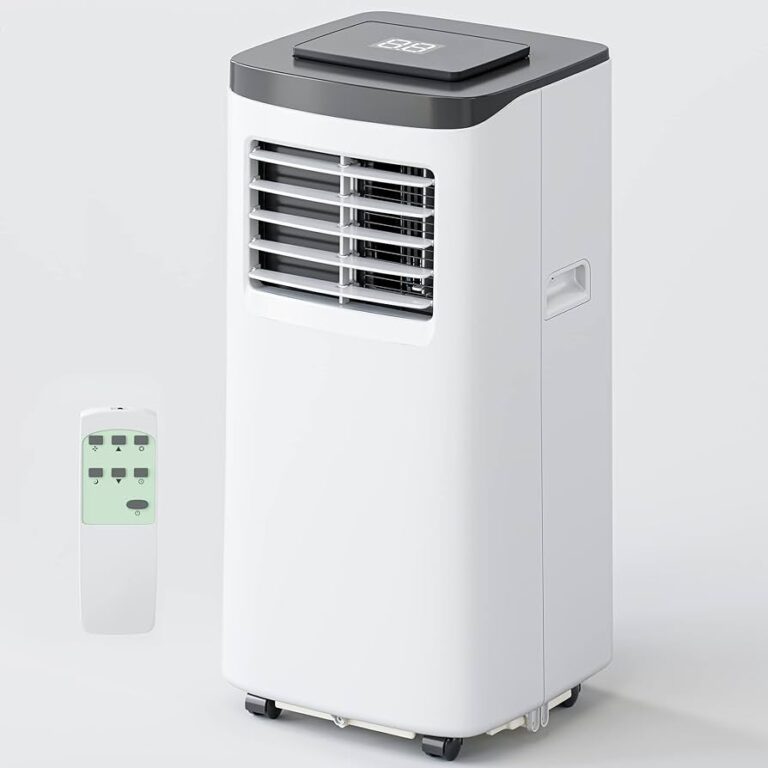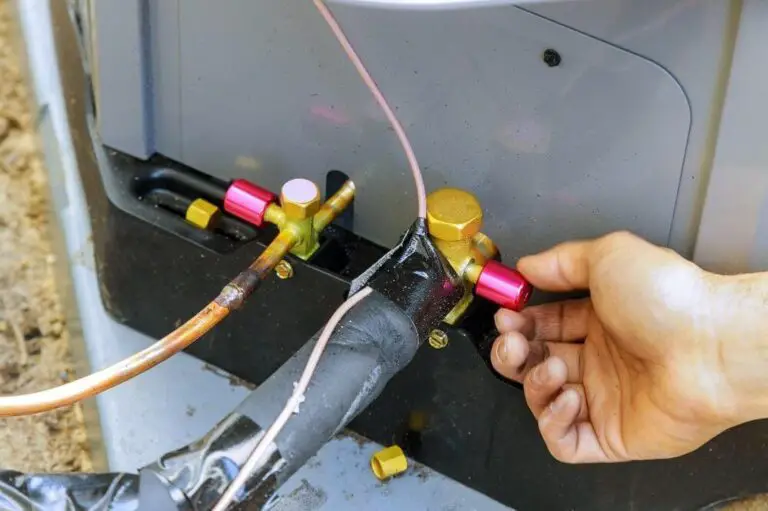Why Does My Car AC Only Get Cold At Night? Uncover the Mystery
Your car AC may only get cold at night due to cooler ambient temperatures and reduced heat load. This allows the AC system to work more efficiently.
Car air conditioning systems often struggle during the day because of higher temperatures and direct sunlight. The heat load on the vehicle increases, making it harder for the AC to maintain cool air. At night, ambient temperatures drop, and the sun is no longer a factor.
This reduced heat load allows the AC system to operate more efficiently, providing cooler air. Checking for issues like low refrigerant levels or a failing compressor can also help. Proper maintenance ensures your AC performs well under all conditions, not just at night.
Common Causes Of Daytime Ac Issues
Car AC issues during the day can be frustrating. Understanding the common causes of daytime AC issues can help address the problem. Here are some common reasons why your car AC may struggle during the day.
Overheating Components
During the day, the car’s components can overheat. This includes the AC compressor and other related parts. Overheating can cause the AC system to work less effectively.
High temperatures can put a strain on the compressor. This may lead to less cold air being produced. Overheating can also impact the refrigerant levels. This makes it hard for the AC to cool properly.
To prevent overheating, ensure your car has proper ventilation. Check the coolant levels regularly. Consider using sunshades to reduce heat inside the car.
Sun Exposure
Sun exposure can significantly impact your car’s AC performance. Direct sunlight increases the car’s internal temperature. This makes it harder for the AC to cool the air inside.
Sun exposure also affects the car’s external temperature. When the car’s exterior is hot, the AC system works harder. This can lead to reduced efficiency.
To minimize sun exposure, park in shaded areas. Use sunshades or window tints to block out the sun. These steps can help maintain a cooler interior and improve AC performance.
In summary, daytime AC issues are often due to overheating components and sun exposure. By addressing these factors, you can improve your car’s AC efficiency during the day.

Credit: www.amazon.com
Role Of Ambient Temperature
The ambient temperature plays a significant role in your car’s AC performance. Your car’s AC may function differently based on the time of day. Understanding how ambient temperature affects your AC can help pinpoint the issue.
Heat Impact
During the day, the sun heats your car. This makes the car’s interior very hot. The AC system works hard to cool down this hot air. The outside temperature also affects the AC’s performance. High temperatures can reduce the efficiency of the AC system.
Here’s a table showing how ambient temperature affects AC performance:
| Ambient Temperature (°F) | AC Performance |
|---|---|
| 70-80 | Optimal |
| 80-90 | Moderate |
| 90-100 | Reduced |
| 100+ | Poor |
Nighttime Cooling
At night, the temperature drops. This makes it easier for the AC to cool the car. The car’s interior is not heated by the sun. So, the AC system does not have to work as hard.
Here are some benefits of nighttime cooling:
- Lower ambient temperature
- Reduced strain on the AC system
- Improved cooling efficiency
These factors contribute to better AC performance at night.
Understanding the role of ambient temperature helps in diagnosing AC issues. It explains why your car AC feels colder at night.
Ac System Efficiency
Understanding your car AC’s efficiency can help you solve cooling issues. If your AC only gets cold at night, system efficiency might be the cause. Let’s explore two key factors: Compressor Performance and Refrigerant Levels.
Compressor Performance
The compressor is the heart of your car’s AC system. It pumps refrigerant through the system, cooling your car. During the day, the compressor works harder due to higher temperatures. This can reduce its efficiency.
At night, cooler temperatures make the compressor work less. This can improve its performance and make the AC colder. If your compressor is old or damaged, it may struggle during hot days.
Refrigerant Levels
Refrigerant is the substance that cools the air in your AC system. The correct level of refrigerant is crucial for efficient cooling.
If the refrigerant level is low, your AC will not cool effectively. During the day, the system may not have enough refrigerant to combat the heat. At night, the lower temperature makes it easier for the system to cool the air.
Check your refrigerant levels regularly. A leak in the system can cause low refrigerant levels. If you suspect a leak, have a professional inspect your AC system.

Credit: www.reddit.com
Impact Of Vehicle Speed
Many drivers wonder why their car AC only gets cold at night. One key factor is the impact of vehicle speed on the AC system’s performance. Let’s explore how speed influences airflow dynamics and cooling efficiency.
Airflow Dynamics
When your car moves faster, more air flows through the AC system. This increased airflow helps the AC unit to cool the air more efficiently.
- Higher speeds boost air circulation.
- Better airflow helps the evaporator cool faster.
- Fast-moving air reduces the strain on the AC system.
At low speeds or during idling, the airflow decreases. This reduces the cooling effect of the AC unit. You’ll notice that the AC feels less effective when you’re stuck in traffic or driving slowly.
Cooling Efficiency
Vehicle speed also affects the cooling efficiency of the AC system. Faster speeds enable the compressor to work more effectively.
| Speed | Cooling Efficiency |
|---|---|
| High Speed | High Efficiency |
| Low Speed | Low Efficiency |
At night, the outside temperature is lower, which helps the AC system to cool the air more efficiently. Lower temperatures reduce the strain on the compressor, making the AC feel colder.
These factors explain why your car AC might feel colder at night. Vehicle speed and outside temperature play significant roles in how well your AC performs.
Maintenance Practices
Proper maintenance practices are vital for your car’s air conditioning system. These practices ensure your AC works well both day and night.
Regular Servicing
Regular servicing keeps your car AC in top shape. Schedule check-ups with a mechanic every six months. This helps catch issues early before they worsen.
- Check refrigerant levels
- Inspect for leaks
- Clean or replace filters
Component Checks
Inspecting each component is crucial. Some key parts to check include:
| Component | Action |
|---|---|
| Compressor | Ensure it runs smoothly |
| Condenser | Check for blockages |
| Evaporator | Clean to avoid frost buildup |
Ensure the compressor runs smoothly. Check the condenser for blockages. Clean the evaporator to avoid frost buildup.
By following these maintenance practices, your car AC can stay cold all day long.

Credit: www.cars.com
Thermal Load Factors
Have you ever wondered why your car AC only gets cold at night? Understanding the thermal load factors can help. These factors influence how your car cools. They can vary based on several elements, including cabin insulation and heat sources.
Cabin Insulation
Your car’s cabin insulation plays a big role. During the day, the sun heats your car’s interior. If the insulation is poor, the heat stays longer. At night, the temperature drops. This helps the AC work better because there is less heat to fight.
Think of your car as a big oven. During the day, it’s like the oven is on high. At night, it’s off, and the AC can cool it faster. Good insulation keeps the heat out during the day, making it easier for the AC to cool.
Heat Sources
During the day, your car faces many heat sources. The sun is the biggest one. Engine heat also adds to the thermal load. Other heat sources include traffic and the road surface. All these make your car hotter.
At night, these heat sources are less intense. The sun is gone, the engine cools faster, and the road surface is cooler. This makes the AC more effective. The car AC does not have to work as hard to cool the cabin.
Here’s a simple table to summarize:
| Heat Source | Day | Night |
|---|---|---|
| Sun | High | Low |
| Engine | Moderate | Low |
| Road Surface | High | Low |
Understanding these factors can help you figure out why your car AC works better at night. Thermal load is key. Less heat means better cooling.
Diagnosing Ac Problems
Is your car AC only cold at night? This issue can be puzzling. Diagnosing AC problems helps in finding the root cause. Fixing it ensures a comfortable drive any time of the day.
Professional Inspection
Professional inspection involves taking your car to a certified technician. They use advanced tools to check the AC system. The technician will inspect the compressor, condenser, and coolant levels.
They may also look at the AC hoses and connections. These checks reveal leaks or blockages. The technician will provide a detailed report. A professional inspection ensures a thorough diagnosis.
| Component | Possible Issue |
|---|---|
| Compressor | Worn out or damaged |
| Condenser | Clogged or leaking |
| Coolant Levels | Too low or contaminated |
| Hoses | Cracks or leaks |
Diy Troubleshooting
DIY troubleshooting can be a quick way to find minor issues. Start by checking the AC settings. Ensure they are correct. Next, inspect the coolant levels. Low coolant can affect cooling.
Check the condenser for debris or blockages. A dirty condenser can cause poor cooling. Look at the AC filter. A clogged filter reduces airflow. Clean or replace it if needed.
If the problem persists, consider checking the AC belt. A loose or worn belt can impact performance. Listen for unusual noises from the AC system. These can indicate mechanical issues.
- Check AC settings
- Inspect coolant levels
- Clean condenser
- Replace AC filter
- Check AC belt
DIY troubleshooting can save time and money. For complex issues, consult a professional.
Solutions For Better Ac Performance
Your car’s AC might only get cold at night due to several reasons. This often indicates issues with the system that can be easily fixed. Here are some solutions for better AC performance.
Upgrading Components
Sometimes, the AC system needs an upgrade to function effectively. Upgrading components can help the AC perform better during the day. Consider the following upgrades:
- Compressor: A new compressor can improve cooling efficiency.
- Condenser: Upgrading the condenser helps in better heat dissipation.
- Expansion Valve: A new valve can regulate refrigerant flow more effectively.
Improving Airflow
Better airflow ensures the AC cools the car efficiently. Here are some steps to improve airflow:
- Clean Air Filters: Dirty filters can restrict airflow. Clean or replace them regularly.
- Check Vents: Ensure all vents are open and unobstructed.
- Inspect Fans: Make sure the fans are working properly to circulate air.
Implementing these solutions can enhance your car’s AC performance. Ensuring your AC system is in good condition will make your drives comfortable, any time of the day.
Frequently Asked Questions
Why Is My Ac Cooling At Night But Not During The Day?
Your AC might struggle during the day due to higher outdoor temperatures, dirty filters, or low refrigerant levels.
Why Is My Car Ac Cold In The Morning But Not In The Afternoon?
Your car AC is cold in the morning because the outside temperature is cooler. In the afternoon, higher temperatures strain the system, reducing its efficiency.
Why Does My Car Ac Stop Working When It’s Hot Outside?
Your car AC may stop working in hot weather due to refrigerant leaks, compressor issues, or an overheating engine. Regular maintenance can prevent these problems. Ensure proper coolant levels and clean the condenser for optimal performance.
Conclusion
Understanding why your car AC only gets cold at night can save you time and money. Regular maintenance and checking for leaks are essential. Ensure proper refrigerant levels to avoid cooling issues. If problems persist, consult a professional for accurate diagnosis.
Enjoy a comfortable ride, day or night.






